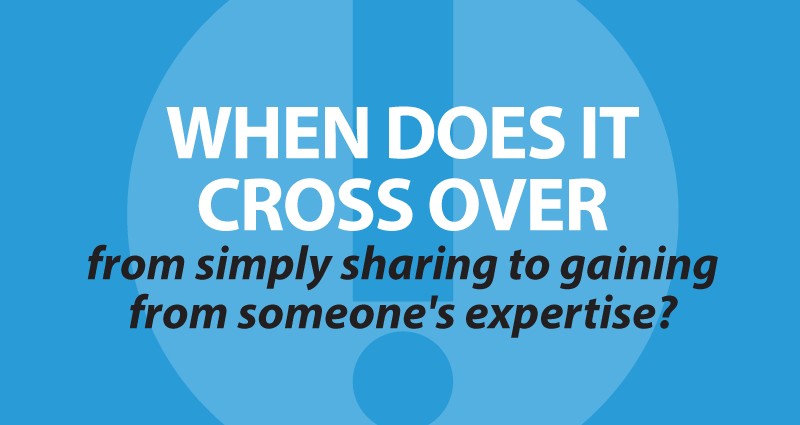
On ditching RFPs, picking brains, and drawing lines.
Is it really okay to pick someone’s brain?
I recently met up with a friend who works at a local credit union to get his take on all the changes that CUs have experienced over the last few years. He listened to what I had to say, agreed with some of my observations, and challenged my thinking on others. It was a fun evening and I enjoyed hearing things from his viewpoint and picking his brain. Hopefully someday I can return the favor, because I definitely got the better end of deal, and walked away with more than I gave.
That probably sounds familiar to most of you, since the credit union world loves to share. Wherever there are two or more CU people, out pop the tips, ideas, referrals, success stories, even lessons-learned from those “everything-that-could-go-wrong…” fiascos. It’s one of the things I enjoy about working with credit unions – that feeling that we are all in this together.
In fact, @iDiz, we are always happy to chat about your biggest, ugliest, hairiest marketing problems. We have often found that a little nudge can get you on the right track, and if you need a specific solution from us or someone else, we’re happy to point you in the right direction.
When does it go too far?
When does it cross over from simply sharing to gaining from someone’s expertise? If you ask pointed questions about something that someone does for their livelihood, is that crossing the line?
It certainly is to Adrienne Graham, in the post she wrote for Forbes.com:
“How would you feel if your boss came to you and said, Hey since we can get this done from information from the Internet, I won’t be paying you today. Go ahead, let it sink in. Got that visual yet? Good. That’s exactly how I feel whenever someone wants to take me to lunch or call me to pick my brain.”
I understand why she feels like she’s being taken advantage of, and she may have been. I’m glad she’s now publicly telling everyone about something that bothers her, and I hope she can turn all those strategy sessions into paying gigs.
But I don’t agree with either her tactic or her lack of tact. Not every person knows where that line gets crossed. By putting up big “NO” signs and drawing hard lines in the sand, she seems more likely to build roadblocks than gain work. Instead, she needs to take the time to explain the difference to the other party, and educate them as to where the line exists. And if you are the one sitting in the opposite chair looking for answers, make sure you understand where she earns her money and be ready to pay for the expertise — otherwise, don’t waste her time.
The same thing can be said for RFPs.
If you are sending out RFPs to a long list of companies you have no intention of hiring, just stop it.
If you are a consultant telling credit unions to send out RFPs to a long list of companies they have no intention of hiring, you should be stopped.
If you send an RFP without allowing for conversation with all of the decision makers, and with no communication about the objectives, then you are just being a bureaucrat. If you already have a source in mind and I don’t really have a shot, then I know more enjoyable ways to waste my time.
Some of our fellow “vendors” have already drawn that line in the sand, and won’t participate in any RFPs. Here at iDiz, we’re happy to develop a custom quote for you, but we’ll be asking our own questions and probably won’t be answering your 48 in the order they are listed.
Best solution? Ditch the RFP.
Do your diligence, find the right partner that fits your needs, that seems to “get” you, and negotiate a price. That’s the fair way to work with a partner.
- It’s hard not to get caught up in a buzz that surrounds you. - April 9, 2024
- Turn your staff into an Idea Factory. - February 27, 2024
- Move with the future or get left behind - February 6, 2024
